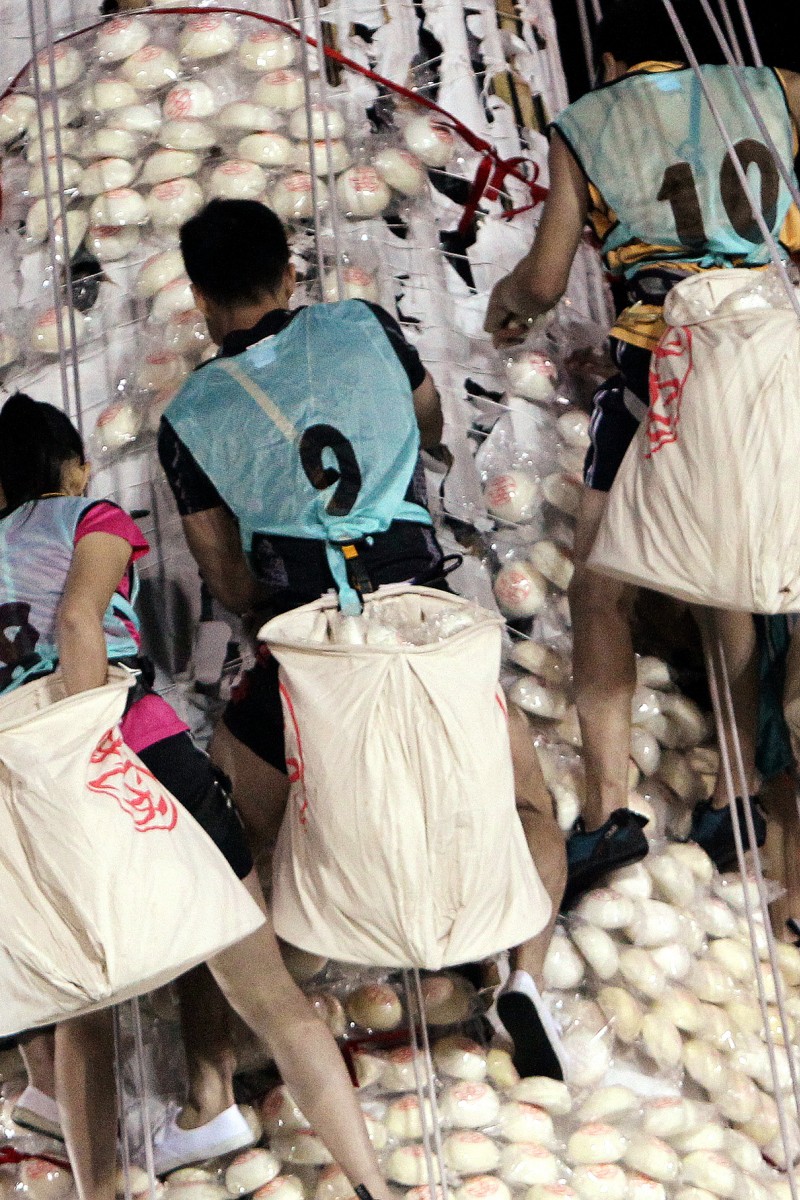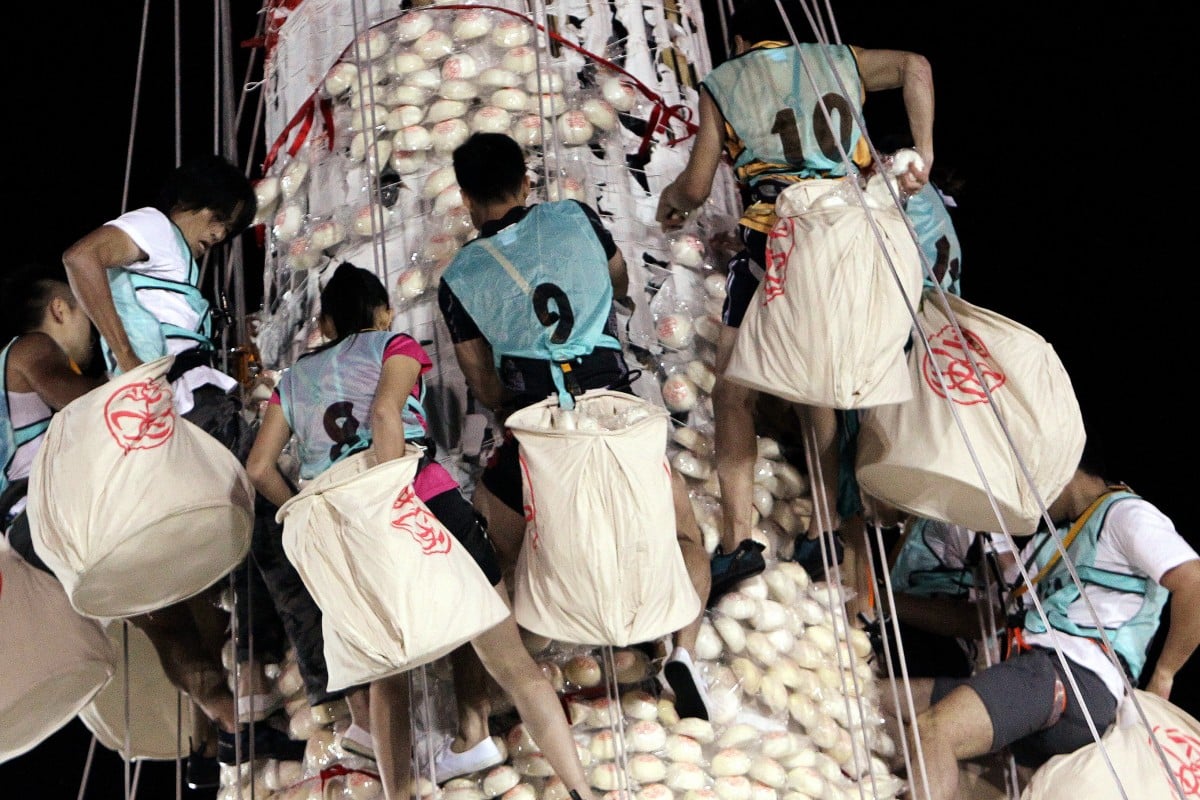
Face Off: Are traditional rituals still relevant in modern life?
Each week, our two teenagers will debate a hot topic. This week …
 Competitors collect buns on a bun tower during a bun-scrambling Competition at Cheung Chau Island
Competitors collect buns on a bun tower during a bun-scrambling Competition at Cheung Chau IslandCedric Li, 16, Sha Tin College
What are rituals really? The Merriam-Webster dictionary defines a ritual as any action that is "always done in a particular situation and in the same way each time". Therefore, cultural rituals such as christening a baby, and everyday rituals such as a firm handshake that we often overlook, can all be considered traditional rituals. They are almost always done in a specific way, and have existed for a long time.
There are also more unique rituals that give cultures meaning and identity. For instance, the yearly Passover ritual celebrated by Jews is used as a symbolic reminder of the struggles faced by the Jewish people while making the journey to Israel. Without this tradition, the important teachings of faith and perseverance would be lost to the Jewish people.
Moreover, this ritual is unique: no other culture in the world celebrates the traditional Passover dinner.
People from all religious, racial and cultural backgrounds mingle and interact in today's modern, globalised world. If not for traditional rituals, it would become extremely difficult for cultures to retain their distinctiveness.
Even everyday rituals have developed in such a way that they have meaning and purpose. Take the handshake for instance. A firm handshake has become a symbol of respect and acknowledgement. Or the Haka, performed by the New Zealand rugby team, which has become much more than just a war dance.
The fact that we still continue to perform rituals highlights their importance, as they have become more than a set of movements to be performed on specific occasions. They have become meaningful actions that are irreplaceable in the modern world. So, there's no doubt, traditional rituals are still relevant today.
Rai Anna-L, 17, The University of Hong Kong
Traditional rituals differ from culture to culture but surely you and I have both been part of them - for example, having Thanksgiving dinner or eating mooncakes during Mid-Autumn Festival. These traditions are handed down from one generation to the next like precious family heirlooms, but does this necessarily mean they are still relevant?
Countless rituals revolve around myths and superstitions stemming from people's need to understand the world at a time when there was little scientific knowhow. For instance, people celebrate full moon during the Mid-Autumn Festival, which is based on a tragic - but clearly unscientific - story. Therefore, continuing to uphold rituals seems ignorant, when we are clearly aware that the reasons behind those traditions are flawed.
It is true that not all rituals are built on false beliefs. Many traditions have a religious background and there's a purpose behind them. However, after performing these rituals again and again over hundreds of years, they begin to lose their significance, and are mostly regarded as formalities.
As many parents probably agree, I doubt that a lot of people think about the reasons behind giving lai see during Lunar New Year or exchanging presents during Christmas. So should we continue those traditions just for the sake of having a familiar routine?
Others say we need rituals to keep cultures alive. But many widely practised traditional rituals have questionable motives - for example, human greed or old-fashioned ideas. Consider the bride's family giving a dowry to the husband's, which is still practised in many places. Why must they give riches to the husband's family when they are taking their precious daughter away from them? Should such exploitation continue in the name of tradition?
Modern humans have "seen the light", so why are we still trying to blindfold ourselves by keeping traditional rituals alive? Times have changed, and with them, certain unreasonable traditions are meant to fade away.